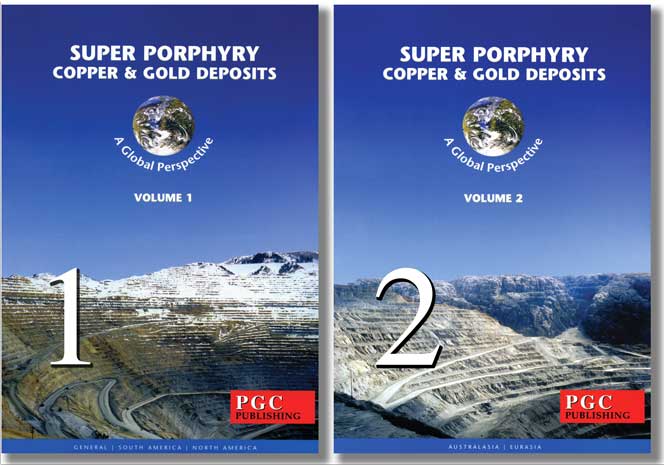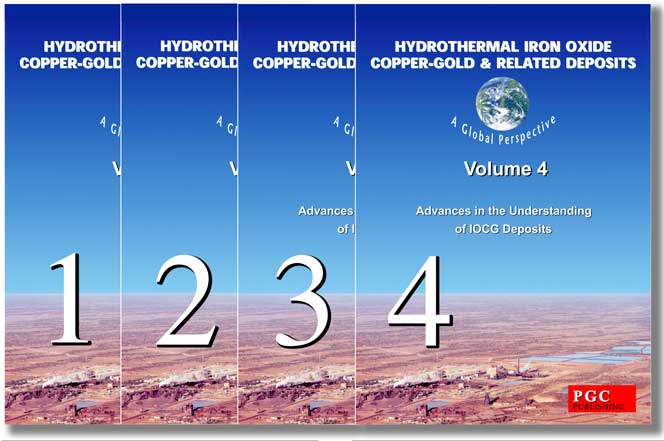|
New Market, Young, Immel, Coy, Gordonsville/Elmwood, Tennessee Zinc, Mascot-Jefferson City |
|
|
Tennessee, USA |
| Main commodities:
Zn Pb
|
|
 |
|
 |
 |
Super Porphyry Cu and Au


|
IOCG Deposits - 70 papers

|
All papers now Open Access.
Available as Full Text for direct download or on request. |
|
 |
A group of significant Carbonate Hosted Deposits in Tennessee, USA include:
New Market - East Tennessee - 12 Mt @ 2.6% Zn.
Young, Immel & Coy - East Tennessee (Mascott-Jefferson City District) - 47 Mt @ 3.2% Zn.
Gordonsville/Elmwood - Middle Tennessee, USA - 39 Mt @ 3.4% Zn.
The figures above are estimates in 1996. In 2010, Nystar NV quoted resources, as follows:
East Tennessee, Young, Immel & Coy
Measured + indicated resources - 4.58 Mt @ 3.3% Zn + Inferred resources - 17.65 Mt @ 3.85% Zn.
Middle Tennessee, Gordonsville, Elmwood & Cumberland
Measured + indicated resources - 3.93 Mt @ 4.74% Zn + Inferred resources - 16.35 Mt @ 3.79% Zn.
Due to the irregular and variable shape of these deposits, very few mineral resources become classified as ore reserves resulting in mining primarily being carried out within the measured and indicated mineral resources, with detailed drilling ahead of production consistently replacing mined resources.
The Coy, Immel and Young deposits are located in East Tennessee, approximately 30 km north-east of Knoxville, while the Middle Tennessee mines of Gordonsville, Elmwood and Cumberland are ~80 km east of Nashville.
Most of the Tennessee deposits are hosted by upper Cambrian to lower Ordovician carbonates. They are largely controlled by faults, with runs of ore following the faults and forming mineralised collapse breccias within dolomites, occurring as open-space filling along these structures.
At Young the dendritic ore runs may be developed within an area of the order of 450 x 275 m and up to 50 m high, but averaging 17 m. These runs are very irregular, only occupying a small proportion of the area within the plan dimensions detailed above.
At Gordonsville the runs may be only 20 m wide but up to 60 m thick and hundreds of metres in length. Mineralisation at Gordonsville is developed within an area of 2000 x 500 m. Because of the erratic nature of the mineralisation proving of reserves by drilling is all but impossible. Basement control is not obvious, unlike the Missouri deposits.
For detail see the reference(s) listed below.
The most recent source geological information used to prepare this decription was dated: 1996.
This description is a summary from published sources, the chief of which are listed below.
© Copyright Porter GeoConsultancy Pty Ltd. Unauthorised copying, reproduction, storage or dissemination prohibited.
|
|
|
|
|
Gratz J F, Misra K C 1987 - Fluid inclusion study of the Gordonsville Zinc deposit, central Tennessee: in Econ. Geol. v82 pp 1790-1804
|
Haynes F M, Kesler S E 1994 - Relation of mineralization to wall-rock alteration and brecciation, Mascot-Jefferson City Mississippi Valley-Type district, Tennessee: in Econ. Geol. v 89 pp 51-66
|
Haynes F M, Kesler S E 1987 - Chemical evolution of brines during Mississippi Valley-type mineralization: evidence from East Tennessee and Pine Point: in Econ. Geol. v82 pp 53-71
|
Peevler J, Fayek M, Misra K C, Riciputi L R 2003 - Sulfur isotope microanalysis of sphalerite by SIMS: constraints on the genesis of Mississippi valley-type mineralization, from the Mascot-Jefferson City district, East Tennessee: in J. of Geochemical Exploration v80 pp 277-296
|
Taylor M, Kesler S E, Cloke P L, Kelly W C 1983 - Fluid inclusion evidence for fluid mixing, Mascot-Jefferson City Zinc District, Tennessee: in Econ. Geol. v78 pp 1425-1439
|
|
Porter GeoConsultancy Pty Ltd (PorterGeo) provides access to this database at no charge. It is largely based on scientific papers and reports in the public domain, and was current when the sources consulted were published. While PorterGeo endeavour to ensure the information was accurate at the time of compilation and subsequent updating, PorterGeo, its employees and servants: i). do not warrant, or make any representation regarding the use, or results of the use of the information contained herein as to its correctness, accuracy, currency, or otherwise; and ii). expressly disclaim all liability or responsibility to any person using the information or conclusions contained herein.
|
Top | Search Again | PGC Home | Terms & Conditions
|
|